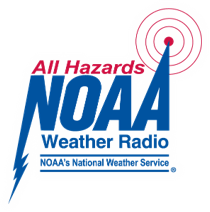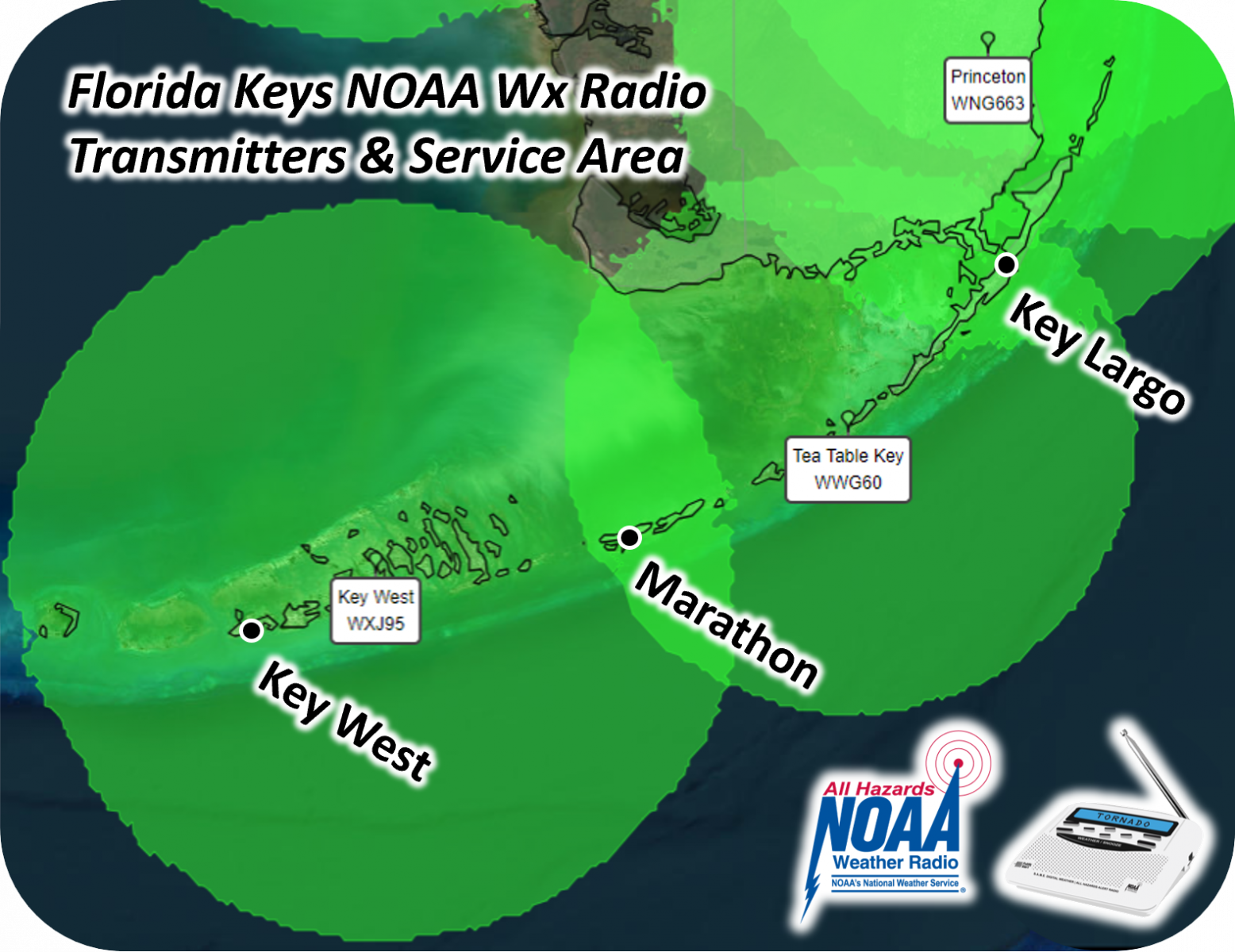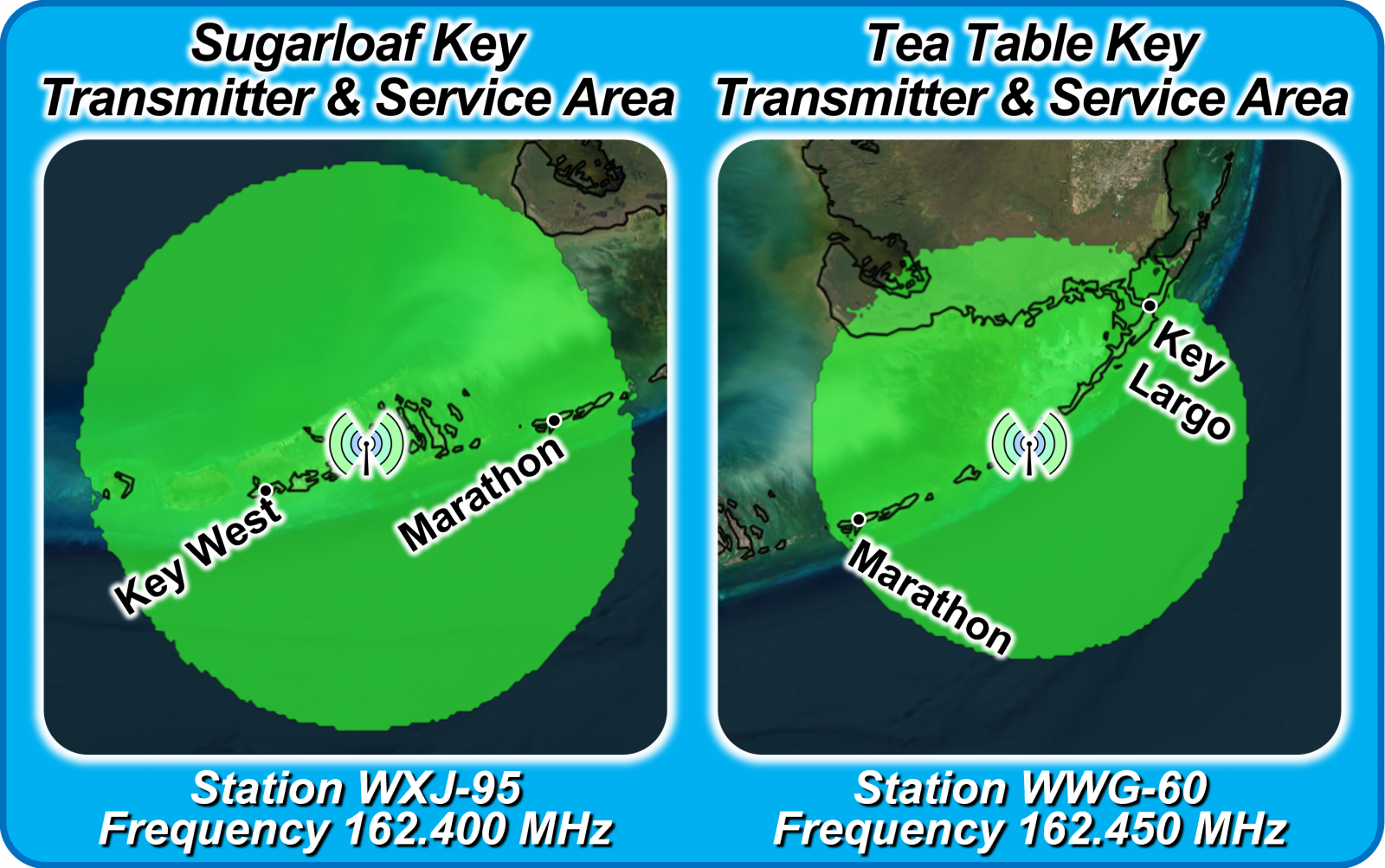
Scattered areas of heavy rain continue to produce isolated flash flooding across the Florida peninsula. Anomalous moisture will combine with a cold front and will bring heavy rain and scattered flash flooding across the Mid-South, Ohio and Tennessee Valleys today and Tuesday. Above average temperatures will continue to be found ahead of the cold front from the Midwest to the Northeast. Read More >

NOAA Weather Radio (NWR) is the voice of the National Weather Service, providing critical weather warning information for the protection of life and property. NWR also provides commercial-free broadcasting of weather forecasts and observations 24 hours a day, 7 days a week. NWR is an all-hazards public warning system which broadcasts emergency messages to the public as necessary 24 hours a day.
These emergency messages are broadcast for natural hazards (weather emergencies), technological and industrial emergencies (radiation release, chemical releases from accidents), AMBER alerts (child abduction with significant endangerment threat), and terrorist attacks (Homeland Security). NWR is the primary means to activate the Emergency Alert System (EAS) for weather emergencies.
The National Weather Service in Key West operates two NWR stations serving the Florida Keys and its adjacent waters.

NWR service coverage for the Florida Keys and South Florida
These stations operate on 162.400 MHz (serving the Keys from Key West through Marathon) and 162.450 MHz (serving the Keys from Grassy Key through Key Largo). In addition, a transmitter broadcast from our neighboring office in Miami on 162.425 MHz (serving the extreme upper Keys including Key Largo and Ocean Reef) is available.

Station details for the two NWR transmitters serving the Florida Keys
Here in the Florida Keys, Monroe County Television offers occasional NWR audio on the Monroe County Government Channel (Comcast Channel 76 and AT&T U-verse Channel 99). You may watch the streaming broadcasts from Channel 76, including instructions for streaming audio for a compatible phone, by visiting the Monroe County Television website.
In addition, the normal television broadcast now has alternating audio between the weather radio, and PSA audio. Select broadcast files are also available on our Marine Radio website, these include the: Coastal Waters Forecast, Short Term Forecast, Hazardous Weather Outlook, and Tide Predictions.
Special Note to Specific Area Message Encoder (SAME) NOAA Weather Radio receivers: To set your radio to only broadcast Emergency Alert System (EAS) messages, the code you need for Monroe County is 012087.
If you use a SAME NOAA Weather Radio receiver, then set your code for "all" according to the manufacturer's instructions. Traveling? You may consult station listings across the country, all of the SAME county codes here, or dial 1-888-NWR-SAME (1-888-697-7263) for more information.
| 0770051 | Synopsis for Florida Bay and the Keys (GMZ005) |
| 077031 | Florida Bay including Blackwater, Buttonwood, and Barnes Sounds (GMZ031) |
| 077032 | Bayside and Gulfside from Craig Key to west end of Seven Mile Bridge (GMZ032) |
| 077033 | Gulf waters from East Cape Sable to Chokoloskee 20 to 60 nm out and beyond five fathoms (GMZ033) |
| 077034 | Gulf of America including Dry Tortugas and Rebecca Shoal Channel (GMZ034) |
| 077035 | Gulf of America from west end of Seven Mile Bridge to Halfmoon Shoal out to 5 Fathoms (GMZ035) |
| 077042 | Hawk Channel from Ocean Reef to Craig Key out to the reef (GMZ042) |
| 077043 | Hawk Channel from Craig Key to west end of Seven Mile Bridge out to the reef (GMZ043) |
| 077044 | Hawk Channel from west end of Seven Mile Bridge to Halfmoon Shoal out to the reef (GMZ044) |
| 077052 | Straits of Florida from Ocean Reef to Craig Key out 20 nm (GMZ052) |
| 077053 | Straits of Florida from Craig Key to west end of Seven Mile Bridge out 20 nm (GMZ053) |
| 077054 | Straits of Florida from west end of Seven Mile Bridge to south of Halfmoon Shoal out 20 nm (GMZ054) |
| 077055 | Straits of Florida from Halfmoon Shoal to 20 nm west of Dry Tortugas out 20 nm (GMZ055) |
| 077072 | Straits of Florida from Ocean Reef to Craig Key 20 to 60 nm out (GMZ072) |
| 077073 | Straits of Florida from Craig Key to west end of Seven Mile Bridge 20 to 60 nm out (GMZ073) |
| 077074 | Straits of Florida from west end of Seven Mile Bridge to south of Halfmoon Shoal 20 to 60 nm out (GMZ074) |
| 077075 | Straits of Florida from Halfmoon Shoal to 20 nm west of Dry Tortugas 20 to 60 nm out (GMZ075) |

We invite your comments about our NOAA Weather Radio broadcast!
We are interested in: